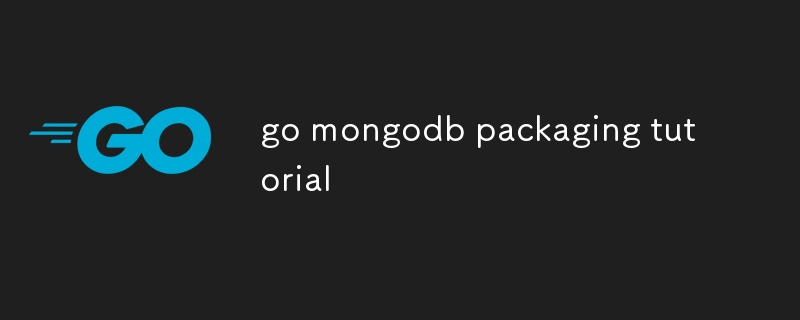This article provides guidance on encapsulating MongoDB operations in Go using an ORM library like mgo. It highlights the benefits of using ORM, such as a simplified API, reduced boilerplate code, and data validation. The article also includes an exa

To encapsulate MongoDB operations in Go, you can use an Object-Relational Mapping (ORM) library like mgo. ORM libraries provide a higher-level abstraction over the MongoDB API, making it easier to work with MongoDB databases in Go.
Using an ORM like mgo for MongoDB in Go offers several benefits, including:
Here is an example of how to use the mgo library to connect to and query a MongoDB database:
package main
import (
"context"
"fmt"
"github.com/globalsign/mgo"
"github.com/globalsign/mgo/bson"
)
func main() {
// Create a new MongoDB session.
session, err := mgo.Dial("mongodb://localhost:27017")
if err != nil {
panic(err)
}
defer session.Close()
// Get a collection from the session.
collection := session.DB("test").C("users")
// Query the collection.
query := bson.M{"name": "John"}
results, err := collection.Find(query).Limit(100).All(nil)
if err != nil {
panic(err)
}
// Print the results.
for _, result := range results {
fmt.Println(result)
}
}以上がgo mongodb パッケージ化チュートリアルの詳細内容です。詳細については、PHP 中国語 Web サイトの他の関連記事を参照してください。